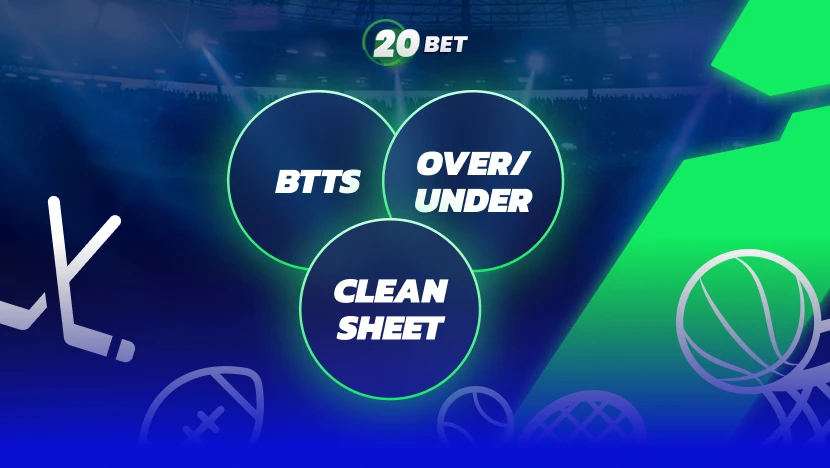A soccer red card changes a match instantly. It alters the game plan, twisting and pumping emotions. That specific moment for bettors is an entirely different play. They don’t focus on who wins – they focus on discipline and emotions on the pitch.
For them, watching whether a player loses control or keeps composure often matters more than statistics like possession and form. This is why many people believe that cards are hands down the best and most straightforward way to find value.
How Card Betting Works: Markets and Odds
There are several ways to approach cards in soccer betting, each with its own style:
- Booking points: yellows = 10, reds = 25, two yellows to red = 35.
- Totals: over/under on cards.
- First booking: which team or player is cautioned first.
- Sent off: back a team or a specific player to see red.
- Handicap cards: one side starts with a points edge.
What Influences the Likelihood of Red Cards or High Booking Totals
Cards come from patterns in refereeing, fixtures, and how teams approach the game. Spotting these signals helps bettors judge when high booking points or even a dismissal are likely.
Referee Tendencies and Discipline History
Officials set the tone. Some enforce strict discipline with quick cards, while others allow play to continue until friction builds. Checking past records is one of the most reliable ways to spot card betting value.
High-Intensity Derby Matches
A fiery soccer derby always raises risk. Rivalry, crowd noise, and extra tension often lead to more fouls, confrontations, and red cards in soccer.
Team Play Styles
Teams shape card counts. High pressing brings fouls under pressure, while physical sides spark provocation. Defensive setups often rely on cynical fouls as enforcement, which can inflate totals.
Tactical Fouling
Small fouls add up. Repeated stops force referee judgment and sometimes push players into reckless retaliation. Reading this trend sharpens your red card betting strategy.
Player-Specific Card Betting: Whom to Watch
Not all players carry the same risk. Some are magnets for cautions, and bettors who track them gain an edge. Midfield anchors who break play, full-backs exposed to tricky wingers, or strikers quick to show protest often appear in card markets. Past records of misconduct or suspensions indicate who is most likely to receive a card. For higher payouts, backing a hot-headed player to be sent off can be a sharp play in red card betting odds.
In-Play Card Betting: Spotting Momentum Shifts
Live betting on cards rewards attention. Watch for signs like rising tempers, a heated clash, or a controversial whistle. These moments raise the chance of a booking. In-play markets move quickly, but they also allow bettors to act on real-time psychology instead of just pre-match stats. Spotting sudden escalation or visible pressure is where in-play card betting becomes most valuable.
Historical Data and Trends in Card Betting
Looking backward helps predict forward. Tracking league averages, referee habits, and head-to-head matchups gives a solid base for red card betting strategy. Some referees average five yellows a game, others only two. Certain teams commit more fouls away from home or under heavy authority from strict officials.
Long-term soccer booking points data also shows which fixtures produce regular flashpoints. For example, derbies with a history of confrontation often repeat the same pattern year after year. Combining these stats with current form makes card betting tips sharper than guesswork alone.
Best Competitions for Booking Point Strategies
Not every league offers the same conditions for card betting. South American matches often run hot, and the numbers back it up. According to FootyStats, Argentina’s Primera División, for instance, has averaged around 5.63 cards per game this year (as of September 1, 2025), far higher than most European leagues. In the 2024/25 season, La Liga registered 4.83 cards per game, the Premier League came in at 4.34, and Serie A averaged 4.1. Southern leagues like La Liga and Serie A are still known for referees stepping in quickly and games being more stop-start, which naturally boosts booking points.
Cup ties and knockout games deserve special mention, too. With silverware or survival on the line, emotions run high, and players are quicker to clash. Spotting these pressure points can give real weight to any red card predictions or strategies built around total bookings.
Recommended Tools and Stats for Card Betting
Solid research separates luck from strategy. Sites like WhoScored and SofaScore track referee profiles, fouls per game, and player records. These numbers give bettors a clearer picture of likely booking points. Specialized platforms also compare red card betting odds across bookmakers, helping you spot value.
When building a red card betting strategy, focus on three basics: referee averages, team discipline history, and player behavior. With these card betting tips, you can move from instinct to informed calls.
Responsible Gambling
Card markets can look tempting because drama feels easy to predict. But soccer matches are unpredictable by nature. Even the best red card betting tips can’t guarantee outcomes. Keep stakes modest, avoid chasing losses, and always step back when frustration starts leading to poor decisions. Betting with discipline ensures the fun stays in the game.
FAQ
What are booking points in soccer betting?










